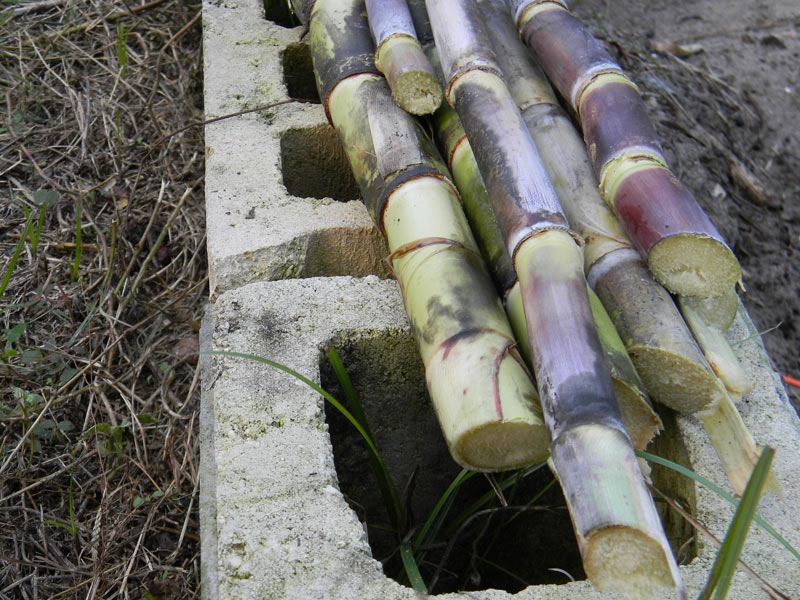Why Walking Cane Sugar Processing Chemicals Are Crucial for Modern Sugar Refining
The role of cane sugar processing chemicals in modern-day sugar refining can not be overemphasized, as they are integral to improving both the performance of extraction and the overall high quality of the end product. Representatives such as phosphoric acid and details flocculants are used to eliminate pollutants, leading to sugar that not just meets consumer expectations yet additionally adheres to industry criteria. The ramifications of these chemicals expand beyond quality, touching upon market dynamics and environmental factors to consider. sugar and cane. This increases important questions concerning the sustainability of such techniques and their effect on the future of sugar production.
Duty of Processing Chemicals
The efficiency of cane sugar handling pivots substantially on the tactical application of processing chemicals. These chemicals play a crucial function in enhancing the effectiveness and top quality of sugar removal and refining. From the first phases of juice removal to the last filtration actions, handling chemicals promote numerous important procedures.
In the extraction stage, chemicals such as phosphoric acid and calcium hydroxide are used to maximize the explanation process, aiding to remove contaminations and put on hold solids from the cane juice. This not just improves the return yet additionally makes sure the quality of the last item. Additionally, representatives like flocculants help in the quick settling of impurities, therefore streamlining the total procedure.
As the handling advances, chemicals are utilized in decolorization and condensation stages. Turned on carbon and ion exchange resins offer to remove color and odor, guaranteeing that the polished sugar meets consumer top quality standards. Ultimately, the function of processing chemicals prolongs past operational efficiency; they significantly influence the sensory attributes of the last item, adding to market competition. Thus, the thorough choice and application of these chemicals are vital for achieving ideal end results in walking cane sugar processing.
Key Kinds Of Chemicals
Cane sugar processing relies upon a selection of essential chemicals that assist in each stage of production. These chemicals play crucial duties in clarifying, bleaching, and purifying the sugar extracted from walking stick.
One key group of chemicals consists of flocculants, such as polyacrylamide, which help in the explanation process by promoting the aggregation and settling of impurities. Additionally, calcium hydroxide is frequently utilized to reduce the effects of level of acidity and aid in the elimination of non-sugar elements.
Whitening representatives, such as triggered carbon and sulfur dioxide, are utilized to decolorize the syrup, resulting in a clearer end product. These chemicals help remove shade compounds that may impact the sugar's appearance and marketability.
Furthermore, phosphoric acid offers as a pH regulatory authority throughout the processing stages, ensuring optimal conditions for the enzymatic tasks associated with sugar extraction and purification.
Other vital agents consist of edta (ethylenediaminetetraacetic acid), which chelates steel ions that could militarize unfavorable responses, and salt hydroxide, which assists in pH control throughout the refining procedure. Collectively, these chemicals boost efficiency and make certain a high-grade walking stick sugar product.
Advantages for Sugar High Quality
Typically neglected, the usage of particular handling chemicals dramatically improves the overall high quality of walking cane sugar. These chemicals play a critical function in refining processes, making sure that the end product fulfills rigorous market criteria for purity and taste.
:strip_icc()/How-to-Plant-and-Grow-Sugar-Cane-965303384-2fdac181359d44c185dfa7988fc181a8.jpg)
Furthermore, refining chemicals help in attaining a regular granulation and appearance, which are important for customer acceptance. By regulating the formation procedure, these chemicals make sure that the sugar crystals develop consistently, resulting in a more appealing product that liquifies well in different applications.
Additionally, the use of these chemicals can improve the service life of cane sugar by decreasing dampness absorption and microbial growth. Overall, the strategic application of handling chemicals is necessary for providing top quality cane sugar that fulfills customer expectations and sector demands.
Ecological Effect Factors To Consider

Moreover, the energy-intensive nature of sugar refining, worsened by chemical use, often causes boosted carbon discharges. This adds to climate adjustment and raises problems relating to the sustainability of current refining practices. Additionally, the sourcing of these chemicals may involve practices that threaten biodiversity, such as monoculture farming, which reduces the resilience of farming environments.

To alleviate these effects, sugar refiners are increasingly exploring lasting choices and taking on ideal methods that minimize chemical use. Implementing rigorous ecological administration systems can help ensure that the refining procedure straightens with ecological requirements and promotes biodiversity. Inevitably, a balanced approach that focuses on both sugar top quality and environmental stewardship is essential for the lasting feasibility of the sugar industry.
Future Trends in Refining
As the sugar sector comes to grips with the environmental obstacles related to traditional refining approaches, cutting-edge approaches are arising to enhance both performance and sustainability. One significant fad is the adoption of environment-friendly chemistry principles, which focus on using non-toxic, eco-friendly processing chemicals. This change not just lessens ecological effect but likewise addresses customer demand for cleaner production methods.
Another appealing growth is the implementation of sophisticated purification innovations, such as membrane separation and adsorption processes. These strategies enhance the quality and high quality of the sugar while reducing the volume of wastewater produced throughout refining. Additionally, the assimilation of digital modern technologies, including IoT and AI, is transforming operational effectiveness by enabling real-time surveillance and anticipating upkeep, thus reducing resource waste.
Moreover, the use of spin-offs from sugar refining, such as bagasse and molasses, is obtaining grip. These materials can be exchanged biofuels or value-added items, adding to a circular economic climate within the industry. Collectively, these patterns indicate a shift in the direction of more lasting techniques that not just boost functional efficiency however additionally straighten with worldwide sustainability objectives, making certain the future feasibility of sugar refining.
Final Thought
Walking cane sugar handling chemicals are crucial in modern sugar refining, dramatically improving the performance and top quality of sugar removal. The critical use these chemicals not only enhances the purity and flavor of the final product yet also guarantees consistent crystallization and texture. As the sector significantly like it prioritizes sustainability, the adoption of environmentally-friendly handling representatives is likely to shape future fads in refining, ultimately leading to better products and extended life span for customers.

Ultimately, a balanced strategy that prioritizes both sugar high quality and ecological stewardship is vital for the lasting viability of the sugar industry.
Cane sugar processing chemicals are crucial in modern sugar refining, considerably improving the performance and quality of sugar extraction.